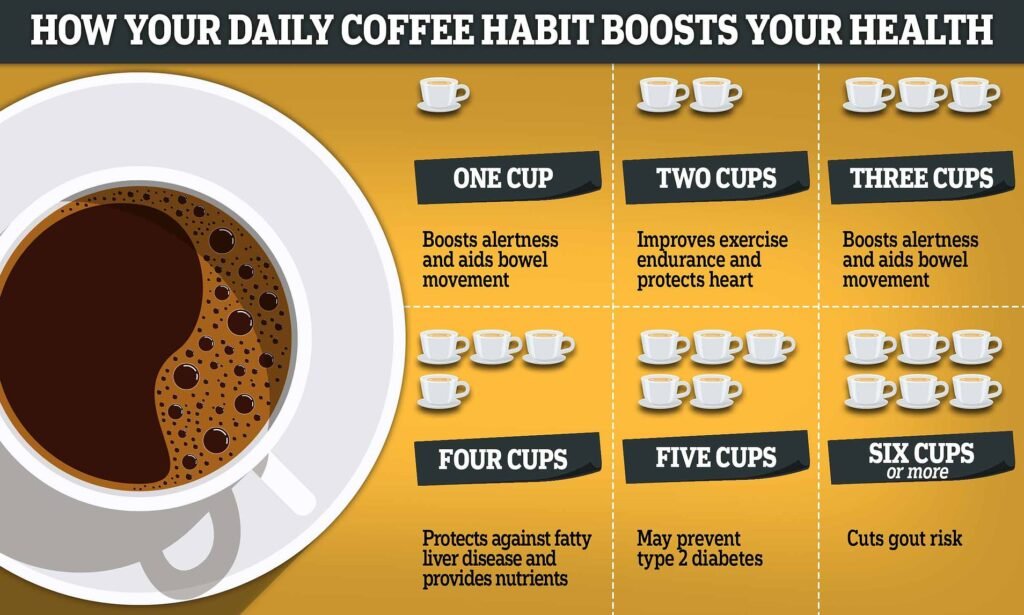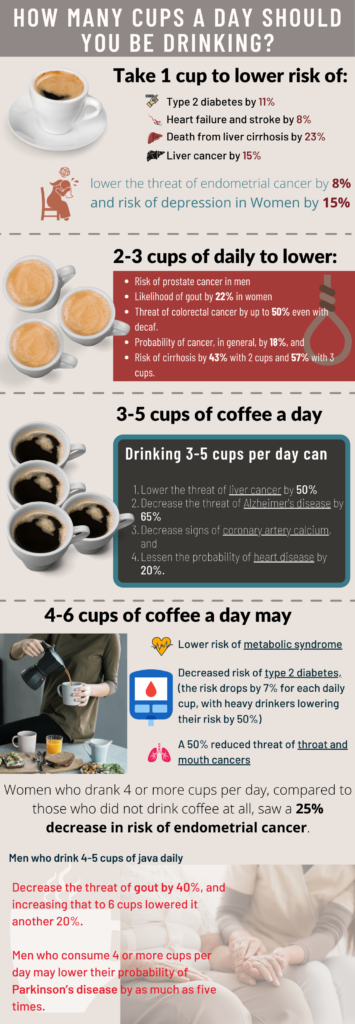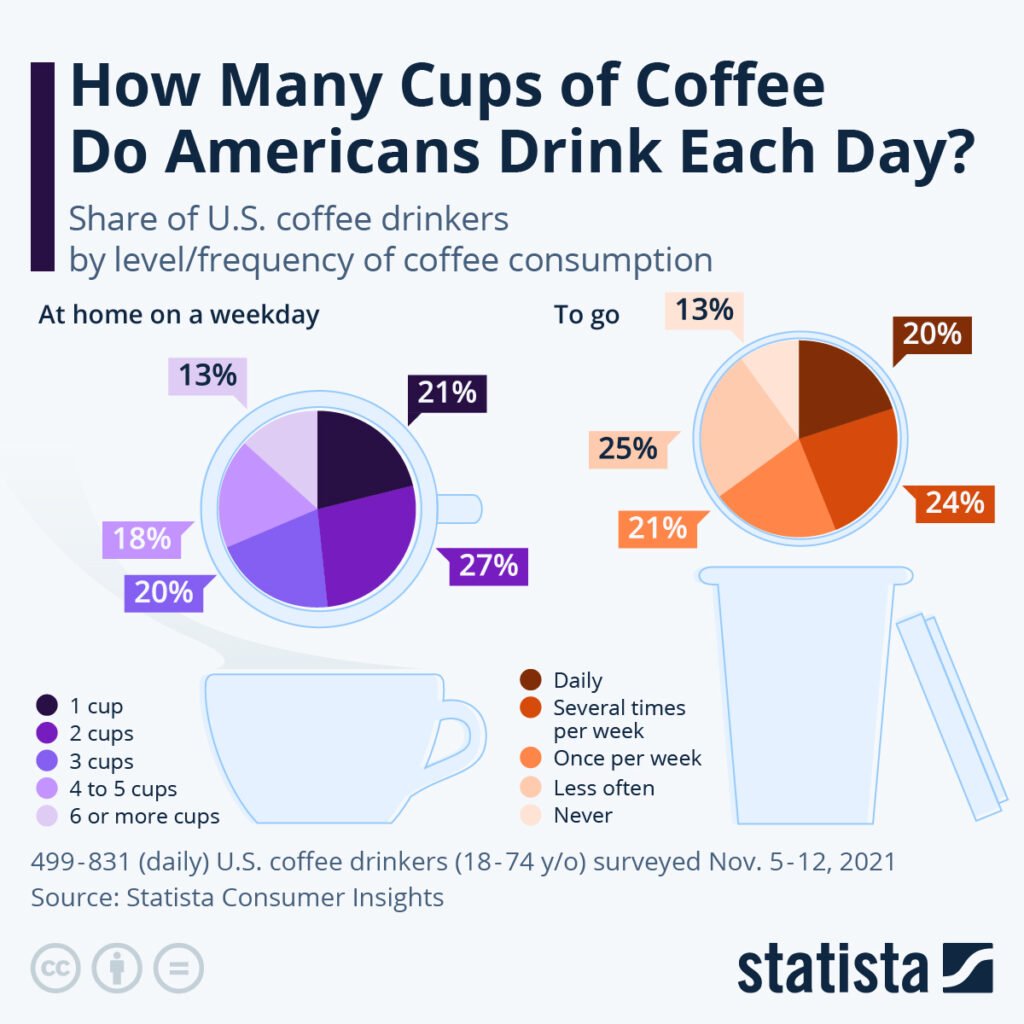Have you ever wondered how much coffee you can drink in a day without it becoming a problem? With so many of us relying on our daily cup (or cups) of coffee to start our mornings and keep us going throughout the day, it’s essential to understand the safe amount of coffee consumption. This article will dive into the nitty-gritty details and help you figure out how many ounces of coffee per day is OK.
The Basics of Coffee Consumption
Coffee is one of the most popular beverages worldwide, with millions of people enjoying its rich flavor and stimulating effects. However, as with anything, moderation is key. To determine how many ounces of coffee per day is safe, it’s crucial to look at the factors influencing coffee’s impact on your health.
Components of Coffee
The main component of coffee that impacts health is caffeine. Caffeine is a natural stimulant found in coffee beans, tea leaves, and various other plants. It’s also added to energy drinks and some medications. Caffeine affects the central nervous system, leading to increased alertness and temporarily warding off drowsiness.
Recommended Daily Intake
The recommended daily caffeine intake for most adults falls within a specific range. According to the Dietary Guidelines for Americans, it is generally safe for most adults to consume up to 400 milligrams (mg) of caffeine per day. But how does this translate into the number of ounces of coffee?

Understanding Coffee Measurements
To make informed decisions about your coffee consumption, you need to understand coffee measurements, how much caffeine is in a typical cup, and how different brewing methods might alter the caffeine content.
Caffeine Content in Coffee
The amount of caffeine in a cup of coffee can vary widely based on factors such as the type of coffee bean, brewing method, and serving size. On average, an 8-ounce cup of brewed coffee contains about 95 mg of caffeine. However, this can range from 70 to 140 mg per 8 ounces.
Table: Average Caffeine Content
| Coffee Type | Caffeine Content per 8 oz |
|---|---|
| Brewed Coffee | 95 mg (70-140 mg) |
| Espresso (1 oz) | 63 mg |
| Decaffeinated Coffee | 2-5 mg |
How Many Ounces Equals 400 mg of Caffeine?
To stay within the recommended 400 mg of caffeine per day, you typically shouldn’t exceed about 4 to 5 cups of brewed coffee, assuming each cup is 8 ounces. However, it can vary depending on the exact caffeine content of the coffee you’re drinking.

Factors Affecting Safe Coffee Consumption
Several factors can influence how much coffee an individual can safely consume. These include age, health conditions, sensitivity to caffeine, and other factors such as pregnancy.
Individual Sensitivity to Caffeine
People have varying sensitivity to caffeine. Some can drink several cups of coffee without experiencing adverse effects, while others might feel jittery or anxious after just one cup. It’s essential to listen to your body and adjust your coffee intake accordingly.
Health Conditions
Certain health conditions can influence how much coffee is safe for you. Individuals with heart conditions, high blood pressure, or anxiety disorders may need to limit their caffeine intake. Always consult with your healthcare provider if you have any concerns about how coffee may affect your health conditions.
Pregnancy and Caffeine
Pregnant women are advised to limit their caffeine intake. The American College of Obstetricians and Gynecologists (ACOG) recommends that pregnant women limit their caffeine consumption to less than 200 mg per day. This is equivalent to about 1 to 2 cups of coffee, depending on the serving size and caffeine content.

Health Benefits and Risks of Coffee
It’s worth noting that coffee consumption has both potential benefits and risks. Understanding these can help you make informed decisions about your coffee intake.
Potential Benefits
- Antioxidants: Coffee is a significant source of antioxidants, which help fight free radicals in your body.
- Mental Alertness: Caffeine can enhance cognitive function and improve short-term memory and concentration.
- Physical Performance: Caffeine can enhance physical performance by increasing adrenaline levels.
Potential Risks
- Insomnia: Consuming too much caffeine, especially later in the day, can disrupt your sleep patterns.
- Digestive Issues: Some people experience stomach discomfort or acid reflux from drinking coffee.
- Dependence: Regular caffeine consumption can lead to dependence, causing withdrawal symptoms like headaches and irritability when you don’t have it.

Managing Your Coffee Consumption
To enjoy the benefits of coffee while minimizing the risks, manage your coffee consumption carefully. Here are some tips:
Monitor Your Intake
Keep track of how much coffee you’re drinking throughout the day and be mindful of other sources of caffeine, such as tea, soda, and energy drinks.
Listen to Your Body
Pay attention to how your body reacts to coffee. If you experience negative symptoms like jitteriness, anxiety, or insomnia, consider reducing your intake.
Choose Quality Over Quantity
Opt for high-quality coffee beans and savor each cup rather than consuming large quantities. This approach allows you to enjoy the flavor and experience without overdoing the caffeine.
Switch to Decaf
If you’re sensitive to caffeine or want to reduce your intake, consider switching to decaffeinated coffee. Decaf still offers the rich flavor of coffee with minimal caffeine content.

Conclusion
In summary, the general guideline for most adults is to keep coffee consumption within the range of 3 to 5 cups per day, translating to 24 to 40 ounces or up to 400 mg of caffeine. However, individual tolerance, health conditions, and specific circumstances like pregnancy can influence this limit. Always listen to your body and consult with healthcare professionals if you have any concerns. By enjoying coffee in moderation, you can reap its benefits while minimizing potential risks.
